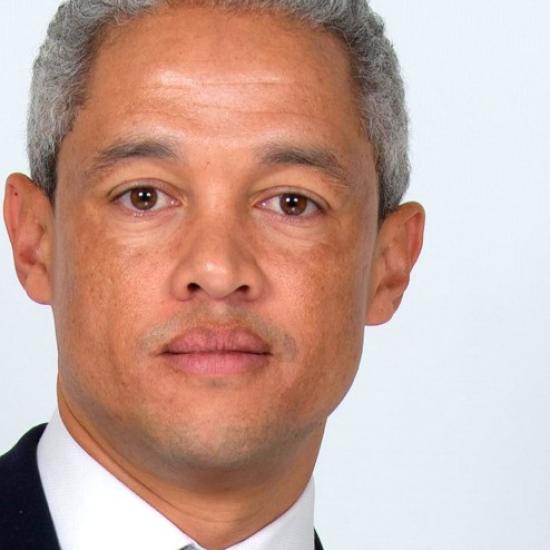Taking steps
to revive South Africa’s economy

The Director-General (DG) of National Treasury, Dr Duncan Pieterse, says the recently revised cost containment measures for departments, constitutional institutions and public entities were issued to help revive South Africa’s economy.
In a wide-ranging interview with Public Sector Manager magazine, the DG noted that in the context of low economic growth and a constrained fiscus, government is looking at taking steps to contain expenditure because revenue generation is not as high as it should be.
When the economy does not grow, it means less tax revenue and government cannot spend as much as it would have been able to under a higher economic growth scenario.
“For the last ten years or so, the economic growth in our country has been quite slow with the average economic growth of 1% versus the average population growth of approximately 1.4%,” he said.
When the economy is not growing as fast as the population, it means the ability of the economy to support the spending that government undertakes, which is financed by tax revenue, becomes constrained.
To address this challenge, National Treasury has over the past years prescribed cost containment guidelines aimed at reducing expenditure in specific areas such as travel and consultants services, among others.
“We have introduced different types of cost containment guidelines which have been quite detailed and prescriptive about what government departments can and can not do. This year, we have updated them to give more authority to accounting officers to manage the costs themselves through their own internal policies,” Pieterse explained.
Vacant positions in government departments
He said finding ways to constrain the wage bill was another step that government took to contain costs, a move he acknowledges has had a direct impact on some departments and their ability to fill vacant positions.
“Part of the challenge we have in so far as the wage bill is concerned is that the headcount of staff members in many departments is stable or have decreased, and the unit cost of workers have been growing steadily over time. Because of that growth in the unit cost, it has become challenging for the fiscal framework in an environment where growth is so low to support that,” Pieterse explained.
He, however, reiterated that personnel-intensive departments such as the police have sufficient resources to employ staff members because they render critical frontline services.
Unfortunately, many other departments, including the National Treasury, have had to limit the growth in employee compensation. This constraint is necessary for government to manage its budgetary commitments and ensure that it can meet its financial obligations.
This approach also allows government to balance the budget effectively between the service delivery commitments, including growing the economy and jobs, building better lives, making communities safer, and fighting against corruption, and the social wage components.
Operation Vulindlela
Pieterse believes that the challenges that prevent the economy from growing faster are structural. Economists differentiate between structural constraints and cyclical constraints.
Cyclical constraints relate to fluctuations in the the business cycle, such as variations in global demand that periodically rise and fall – a cyclical issue that constrains growth.
A structural issue, on the other hand, is something that does not go up or down with changes in the global economy.
“A structural issue is something like Eskom’s inability to provide the amount of electricity that the country needs. Another example of a structural issue is Transnet’s inability to operate freight rail lines effectively. That is why over the last few years, we focused on using Operation Vulindlela as one of the measures to address these structural constraints to economic growth,” he explained.
Operation Vulindlela is a joint initiative of The Presidency and National Treasury to accelerate the implementation of structural reforms and support economic recovery.
Pieterse noted that significant progress has been made through this initiative.
“Over 90% of the reforms from Operation Vulindlela Phase 1 have either been executed or are on track to be executed. The impact of that will, in our view, be seen as the economy recovers and as businesses start to reinvest because they now have electricity, and as our exports grow because we are able to get our goods onto the rail system and out of the ports,” he said.
He added that through Operation Vulindlela, government has focused on the electricity sector, particularly how to transform Eskom and the energy sector in order to address loadshedding so that the country can have the amount of electricity it needs to help grow the economy.
Similarly, through Operation Vulindlela, government worked on improving the freight rail sector as an attempt to address the structural challenges that prevent the economy from growing, and, therefore, preventing the country from creating adequate jobs.
Cabinet passed the Freight Logistics Roadmap in December 2023, which is meant to address the challenges in the logistics industry and all the reforms that are contained in the plan.
Pieterse noted that it is important for government to continue implementing the structural reform agenda to get growth higher than it currently is so that the country can be able to generate more tax revenue and direct more resources to critical service delivery areas.
In the budget earlier this year, National Treasury indicated that reviving economic growth requires three pillars – a stable macro-economic framework, Structural reforms and the capacity of the State to invest in infrastructure.
Pay your taxes
With the tax season now open, Pieterse reminded public servants that it is important be tax compliant because there is a strong link between the tax revenue that the country generates and government’s ability to afford various policy priorities that are articulated in the fiscal framework.
“Paying one’s taxes becomes a very important part of the social contract that we have because the budget is fundamentally funded through tax revenue. To an extent, we all contribute to paying our taxes so that we are able to give an effect to the priorities in the budget,” he added. ❖
About the DG
Pieterse was appointed DG for the National Treasury in September 2023. He has served in various positions in the department over the past 10 years, including as the Deputy DG (DDG) for Economic Policy and later DDG for Asset and Liability Management.
Prior to joining National Treasury, he worked as a development economist and public finance consultant. He also conducted research at Yale and Brown Universities in the United States.
He holds a Bachelor of Business Science, Master of Business Science and Doctor of Philosophy degrees, all in economics, from the University of Cape Town. He also holds a Master’s in Public Administration Degree from Harvard University.
He serves as an Adjunct Associate Professor in the School of Economics at the University of Cape Town and is the current Chair of the Board of Directors of the New Development Bank.



